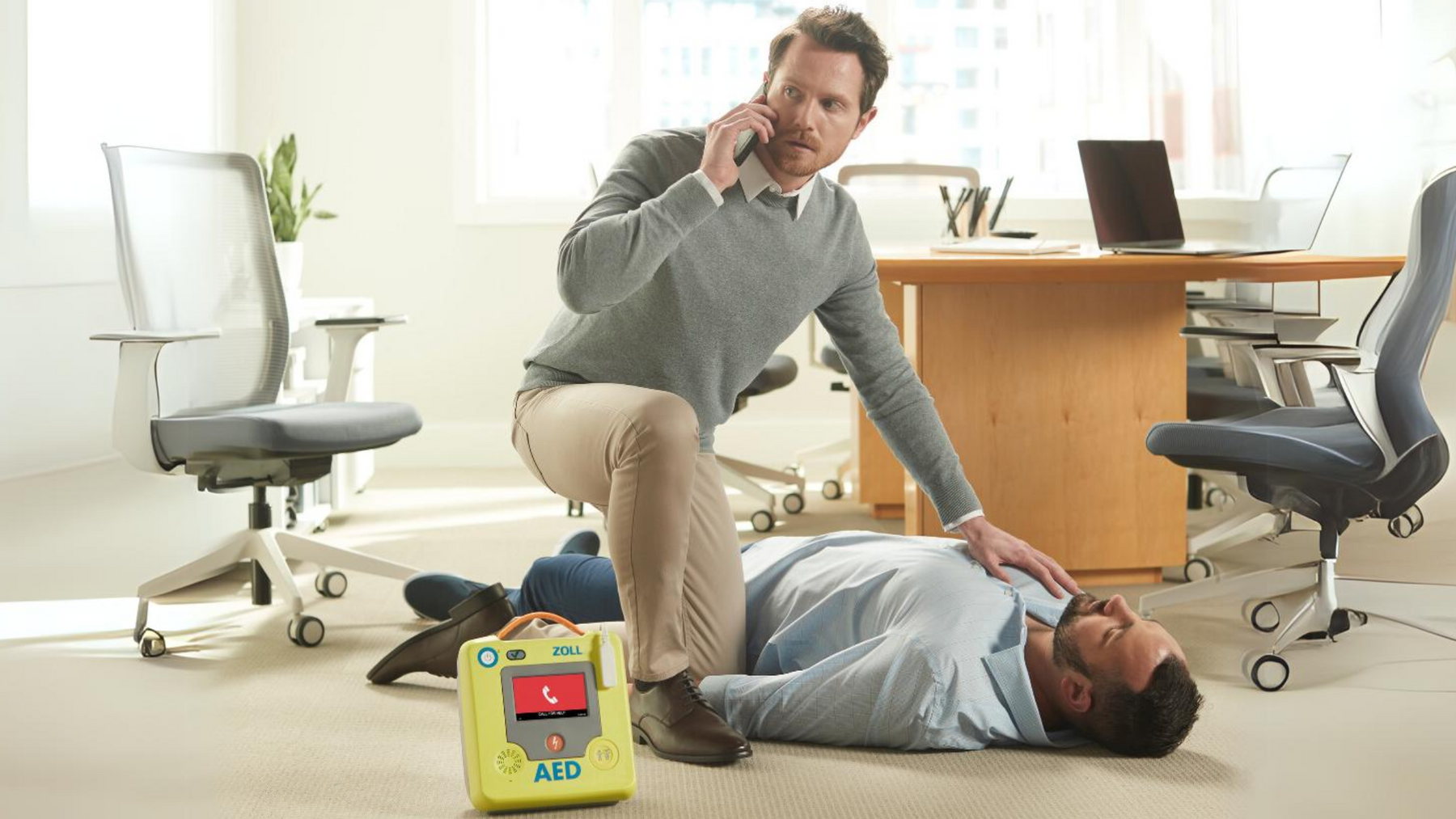Over £100 (Mainland UK)
Over £100 (Mainland UK)

Written by Steve Jelfs
Psychological support is critical for both rescuers and survivors of sudden cardiac arrest (SCA). This form of support addresses the profound emotional and psychological impacts that a sudden cardiac arrest can have on all involved parties. Understanding these impacts is crucial in designing comprehensive care strategies that go beyond immediate medical interventions. This article discusses the importance of psychological support for sudden cardiac arrest survivors and rescuers, supported by references to existing research and studies.
Survivors of sudden cardiac arrest often face significant psychological challenges. The experience of sudden cardiac arrest can lead to intense emotional responses, including anxiety, depression, post-traumatic stress disorder (PTSD), and a heightened fear of death. These reactions are often triggered by the trauma of nearly dying, the sudden loss of normalcy, and the uncertainty about future health outcomes. Research has shown that up to 50% of SCA survivors experience symptoms of anxiety and depression, while 19% may develop PTSD due to the traumatic nature of their experience (van den Broek et al., 2020).
Additionally, survivors may suffer from cognitive impairments such as memory loss, difficulty concentrating, and impaired decision-making abilities, which further worsen emotional distress. According to Moulaert et al. (2015), cognitive impairments are present in approximately half of sudden cardiac arrest survivors, which can significantly affect their quality of life and increase the risk of psychological issues. Psychological support, including counselling and cognitive rehabilitation, is essential to help survivors cope with these changes and rebuild their lives after such a traumatic event.
Providing psychological support to survivors is vital in promoting mental health and aiding recovery. Psychological interventions, such as cognitive behavioural therapy (CBT), have been found to reduce symptoms of depression and anxiety in SCA survivors (Sawatzky et al., 2016). Support groups also offer survivors a platform to share their experiences and connect with others facing similar challenges, which can foster a sense of community and reduce feelings of isolation.
Moreover, psychological support can help survivors develop coping strategies to manage their fears and uncertainties about their health. For instance, psychoeducation can empower survivors by enhancing their understanding of sudden cardiac arrest, its causes, and the recovery process, thus reducing anxiety and increasing a sense of control over their situation (Moulin et al., 2016). Such support is crucial not only for mental health but also for encouraging adherence to medical advice and lifestyle changes that are vital for preventing recurrence.
Rescuers, including first responders and medical professionals, also face significant psychological challenges when dealing with sudden cardiac arrest cases. The high-stress and time-sensitive nature of resuscitation efforts can lead to intense emotional reactions, such as feelings of guilt or inadequacy if the outcome is not favourable. This emotional burden can result in what is known as “secondary traumatic stress” or “compassion fatigue,” where rescuers experience symptoms similar to PTSD due to repeated exposure to traumatic events (Maunder et al., 2021).
Studies have shown that the prevalence of PTSD among emergency medical personnel can be as high as 20%, with those involved in resuscitation efforts being particularly at risk (Bennett et al., 2004). The emotional toll on rescuers can lead to burnout, characterised by emotional exhaustion, reduced empathy, and decreased job satisfaction, all of which can impair job performance and personal well-being.
Psychological support for rescuers is essential to help mitigate these effects and maintain their ability to perform their duties effectively. Access to mental health resources, such as counselling and stress management programs, provides rescuers with the tools they need to process their experiences and cope with the emotional demands of their work. According to Smith et al. (2017), peer support programs, where rescuers can share their experiences with colleagues who understand their unique challenges, are particularly effective in reducing stress and preventing burnout.
Training programs that focus on building psychological resilience and self-care are also vital. These programs can teach rescuers coping mechanisms for managing stress and recognising signs of mental health issues, both in themselves and in their colleagues (Mealer et al., 2012). Furthermore, regular debriefing sessions after traumatic incidents can provide a structured environment for rescuers to discuss their experiences, express their emotions, and receive support from mental health professionals (Maunder et al., 2021).
Addressing the psychological needs of both survivors of sudden cardiac arrest and rescuers requires a holistic approach that integrates mental health support with medical care. For survivors, this may include a combination of psychological counselling, support groups, and rehabilitation services to address both physical and cognitive impairments. For rescuers, comprehensive care should involve mental health resources, peer support, and training programs focused on resilience and self-care.
Organisations involved in emergency response and healthcare should prioritise the mental well-being of their staff by fostering a culture of openness and support, where seeking help for mental health issues is encouraged and normalised. This approach not only benefits the individuals directly involved but also enhances the overall effectiveness of emergency services by ensuring that rescuers are mentally and emotionally prepared to perform their roles.
The psychological impact of sudden cardiac arrest on survivors, their families, and rescuers underscores the need for comprehensive psychological support. Survivors require support to cope with the emotional and cognitive aftermath of their experience, while rescuers need resources to manage the stress and emotional demands of their roles. By recognising and addressing these psychological needs, healthcare systems can provide more holistic care that promotes recovery and well-being for all affected by sudden cardiac arrest.
Check out our blog about the stress of performing CPR and using a defibrillator as a layperson:
The Stress on Laypersons Performing CPR and Defibrillation: A Crucial Lifesaving Effort
Defibrillators we stock are in our shop, also you can email or call us sales@defib4life.co.uk – 01629710128 and find us on social media, on Facebook, Instagram & LinkedIn.
References